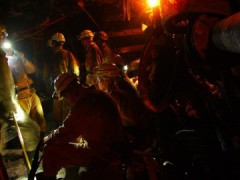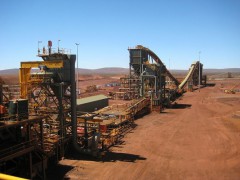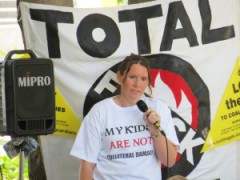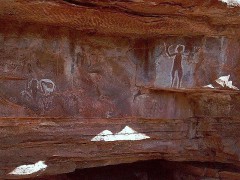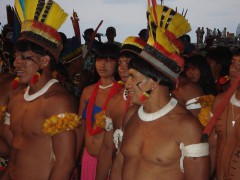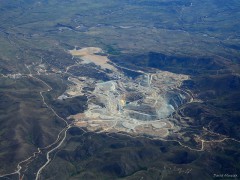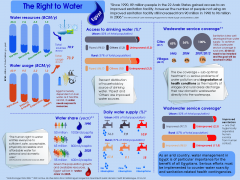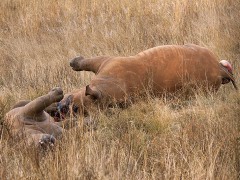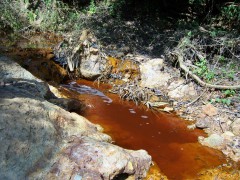A Zero-Sum Game?
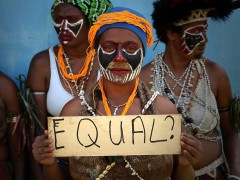
 For this content package, Future Challenges decided to look at the tug-of-war between our need for raw materials to provide us with the objects that constitute “development,” from water pipes to washing machines. We put together several different perspectives from professionals in this area from the United States, Australia, Canada, the Philippines and Mongolia – all places where rural and indigenous people are both enjoying the benefits and suffering the costs of nearby extractive industries. To these five people, we posed the following question:
For this content package, Future Challenges decided to look at the tug-of-war between our need for raw materials to provide us with the objects that constitute “development,” from water pipes to washing machines. We put together several different perspectives from professionals in this area from the United States, Australia, Canada, the Philippines and Mongolia – all places where rural and indigenous people are both enjoying the benefits and suffering the costs of nearby extractive industries. To these five people, we posed the following question:
“Rapid globalization makes competition for land, raw materials and other resources intense. When the stakes are so high, can rural, indigenous peoples and urban, industrialized communities both benefit from resource extraction? Or is this situation a zero-sum game?”
Below you’ll find their own opinions, but we want to know how you see the issue, too.
—–
Tom Hoefer, the Executive Director of the Northwest Territories & Nunavut Chamber of Mines in Canada, pointed to the benefits that Inuit communities in Canada’s high North have enjoyed, thanks to the mining companies that provide livelihoods after pressure on their traditional ways of life.
“Training partnerships and industry-community agreements have helped make mining the largest private sector employer of Aboriginal people, and have created a brand new Aboriginal mining business community. The mines provide much needed employment and income to fill the void created when NGO pressures decimated the fur trade, an economic cornerstone of Aboriginal communities for several hundred years. Aboriginal communities have captured thousands of person years of long term, high paying mining jobs, and several billion dollars in business spending through their new business ventures.”
(Click here to read the full interview with Tom Hoefer)
—–
Clemente Bautista, President of Kalikasan: People’s Network for the Environment points instead to the one-way street that mining has been in the Philippines, delivering profits into the hands of foreign corporations while ruining homelands for millions of rural people.
“As of July 2012, mining concessions cover 1.15 million hectares of Philippine soil, mostly owned by foreign corporations. As these corporations have the right to own and exploit these areas, millions of our grassroots peoples were driven out of their lands. Large-scale mines have historically caused massive pollution and widespread forest denudation, affecting the livelihood and food source of rural communities.”
(Click here to read the full statement from Clemente Bautista)
—–
Andy White, Director at the Rights and Resources Initiative, points out that it’s not actually a simple tug-of-war; governments and civil society organizations are also responsible for establishing, monitoring and enforcing norms in these situations.
“…in many of these countries, the land rights and the resources rights of the indigenous tribal communities are not yet formally recognized. They’re not recognized by all governments and actually implemented. So as you know, in many of these countries most mining now takes places in rural or remote areas. Those are the same areas where many indigenous and other rural, usually politically-marginal people live and have lived for millennia. But in many of these countries, the governments still claim that land as government land and the resources as government-owned resources, even though they’ve signed international conventions that say that they need to respect the rights of indigenous communities. Many countries have not yet done even that…”
(Click here to read the transcript of the interview that Lourdes Gomez, Future Challenges Regional Editor for Australia-Pacific, conducted with Andy White)
—–
Amartuvshin Amarjargal, Associate Professor at the University of Ulaanbataar in Mongolia, looks at the specific problem in that country, which is the government’s ownership of the land typically used by nomadic communities; this gives those communities little legal recourse, and gives mining companies no reason to pay particular attention to communities’ needs.
“…there have been several clashes between nomadic communities and mining companies since 2000, but the mining companies have always won in a legal sense because they have land usage rights to the areas of concern from the state, which owns land. As a result, nomadic communities have moved away from mining areas without any significant restoration of lost income or compensation from mining companies. When mining managers operating in the South Gobi region were asked about the biggest compensation they had provided to nomadic communities, their answer was that they had sent a “free” truck to make them move out of the mining area. Such “compensation” to nomadic communities from mining companies is commonplace and representative in Mongolia.”
(Click here to read the full statement from Amartuvshin Amarjargal)
—–
Vladimir Pacheco, a Senior Social Consultant at Worley Parsons in Australia, makes the important point that the issue isn’t whether minerals should be extracted or not, but rather how the profits from those extractions are apportioned. How could money flow back to the local communities in amounts that create real benefits for them?
“I think that through some systems of benefit-sharing we could make it a win- win situation. At the moment the problem is that the benefit-sharing systems we have are not strong enough. For instance the taxation system that we have in Australia for mining companies [is] one where…the government taxes the companies, but it also gives them back a lot of that tax. In other words, it subsidises a lot of the business. So the state ends up paying a lot for that resource, and the companies keep the profits…”
Interview with Vladimir Pacheco – Australia by enfantsocialist
* The photo shows a young girl in Papua New Guinea. Photo taken by Flickr user “World Bank Photo Collection”, published under a CC BY-NC-ND 2.0 license.
Tags: GLOBALISATION, globalization, indigenous communities, mining, mining industry, Natural Resources, resources, Rural, urbanization

